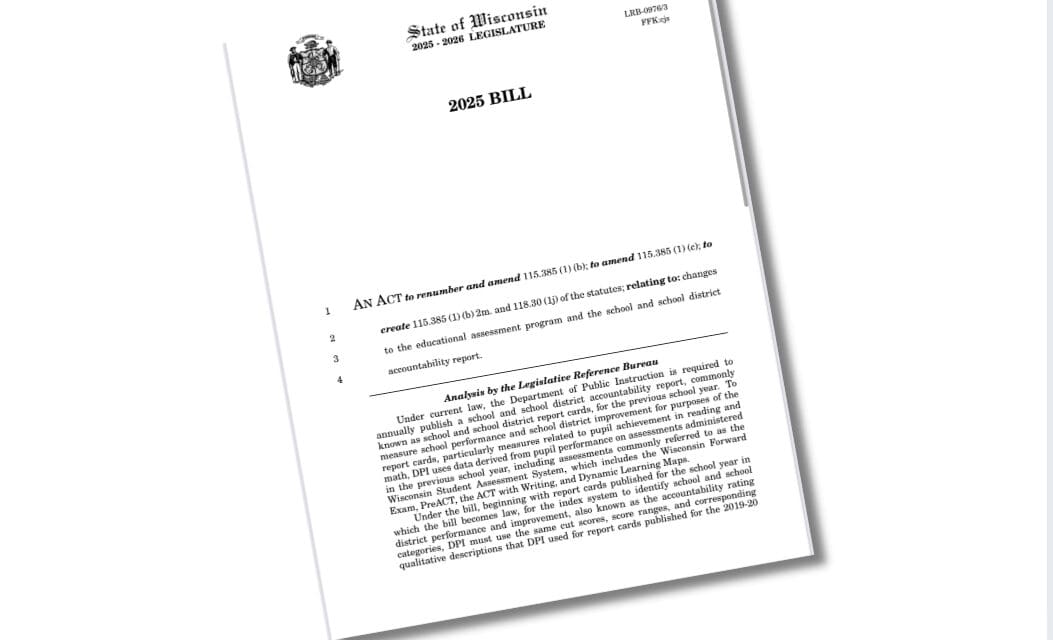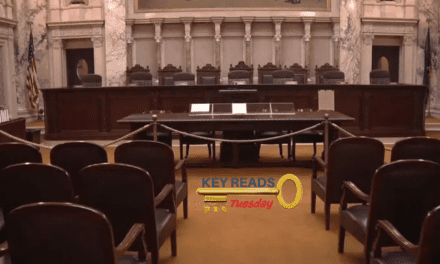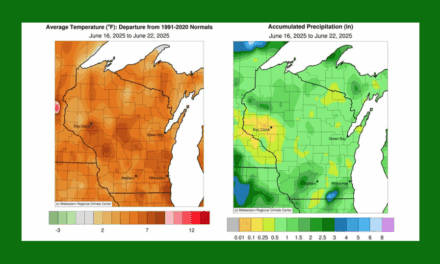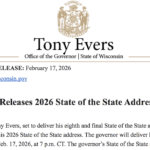Each year, Wisconsin elementary students take the Forward exam, while high school students take the ACT. Traditionally, the performance categories were labeled “advanced,” “proficient,” “basic,” and “below basic.”
However, the Department of Public Instruction (DPI) under Superintendent Jill Underly recently revised the standards for the Forward Exam. The new labels are “advanced,” “meeting,” “approaching,” and “developing,” and the benchmarks for these categories were adjusted, effectively increasing the number of students categorized in higher performance levels.
These changes have sparked controversy, drawing criticism from both Republican legislators and Democratic Governor Tony Evers. The alterations mean that Wisconsin’s test scores are no longer aligned with the National Assessment of Educational Progress.
In response, Republican Senators John Jagler of Watertown, Representatives Robert Wittke of Caledonia, and Todd Novak of Dodgeville have drafted a bill. They are seeking support for this legislation, which they plan to introduce soon. The lawmakers argue that the changes by DPI have compromised the ability to compare Wisconsin’s educational outcomes with other states and with historical data from within the state.
This summer, behind closed doors, the Department of Public Instruction made the controversial decision to drastically change the cut scores of how these assessments are measured and redesign the assessment process. A move that even Governor Evers criticized saying, “I just think there should have been some information and dialogue happening with all sorts of people before that decision was made.” In doing so, they made it nearly impossible to compare the current student achievement with prior years.
Co-Sponsorship email distributed by Wisconsin State Senator John Jagler
Beyond the test score adjustments, the proposed bill also aims to restore the pre-COVID standards for school and district report cards, which Underly’s administration altered in 2021.
“The bill represents a critical step in restoring the ability of parents, policymakers, and taxpayers to assess how well Wisconsin’s schools are doing across the public, charter, and private voucher sectors,” said Dr. Will Flanders, research director for The Wisconsin Institute for Law & Liberty. “Make no mistake, since 2020, DPI has essentially changed the definition of success to mislead the public about stagnating academic performance in Wisconsin schools.”
Underly, currently seeking re-election, has defended her department’s changes, arguing they were based on the input of nearly 100 education experts. She contends that the standards were not “lowered” but rather updated to better reflect student performance.
“Our updated standards more clearly lay out learning expectations, and detaching the cut scores from NAEP better demonstrates our results. I strongly stand by the decision to make this system better for the long haul.” Underly has said.
The candidates challenging Underly for state superintendent this Spring have expressed support for the Republican initiative. Brittany Kinser, with her background as a teacher and principal, said, “I know students rise to the expectations set for them. Lowering standards deprives our kids of the opportunity to be college- or career-ready, and that is unacceptable in Wisconsin. Our kids deserve more, not less, and I look forward to working with the legislature to pass this proposal.”
Jeff Wright, another candidate, criticized the timing of Underly’s changes, suggesting they were ill-timed amidst post-COVID evaluations. “Wisconsin needs to set high standards for its students,” Wright, the current superintendent of the Sauk Prairie School District said. “Even Gov. Evers called the current State Superintendent’s lowering of standards a mistake in a clear rebuke of the current administration. While I support the objectives of this bill, it’s unfortunate that the Legislature has to step in.”
A Primary Election for the state superintendent position is set for February 18. The top two vote getters advance to the General Election on April 1.
Lawmakers have one week to sign onto the legislation as co-sponsors.
Governor Evers’ office has yet to comment on whether he would sign the bill if it reached his desk.
1.21.25















